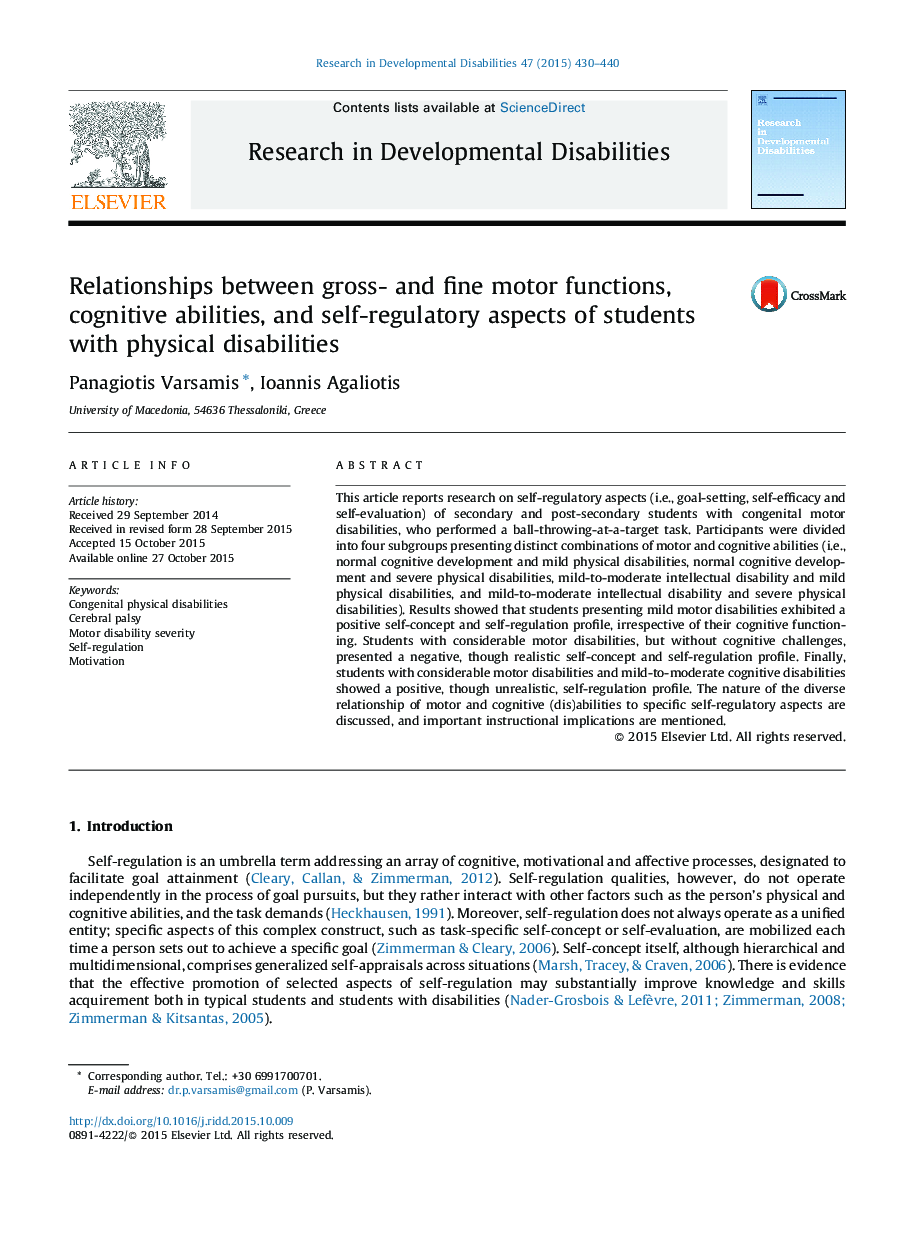| Article ID | Journal | Published Year | Pages | File Type |
|---|---|---|---|---|
| 371149 | Research in Developmental Disabilities | 2015 | 11 Pages |
•Self-regulatory aspects of students with congenital physical disabilities were investigated.•The most positive self-concept and self-regulation profile was presented by students with mild motor difficulties.•A negative, though realistic profile was exhibited by students with severe motor difficulties and normal cognitive functions.•Students with severe motor difficulties and cognitive difficulties demonstrated a positive, but unrealistic profile.•Results support informed instructional decisions for supporting students with motor disabilities and self-regulatory problems.
This article reports research on self-regulatory aspects (i.e., goal-setting, self-efficacy and self-evaluation) of secondary and post-secondary students with congenital motor disabilities, who performed a ball-throwing-at-a-target task. Participants were divided into four subgroups presenting distinct combinations of motor and cognitive abilities (i.e., normal cognitive development and mild physical disabilities, normal cognitive development and severe physical disabilities, mild-to-moderate intellectual disability and mild physical disabilities, and mild-to-moderate intellectual disability and severe physical disabilities). Results showed that students presenting mild motor disabilities exhibited a positive self-concept and self-regulation profile, irrespective of their cognitive functioning. Students with considerable motor disabilities, but without cognitive challenges, presented a negative, though realistic self-concept and self-regulation profile. Finally, students with considerable motor disabilities and mild-to-moderate cognitive disabilities showed a positive, though unrealistic, self-regulation profile. The nature of the diverse relationship of motor and cognitive (dis)abilities to specific self-regulatory aspects are discussed, and important instructional implications are mentioned.
